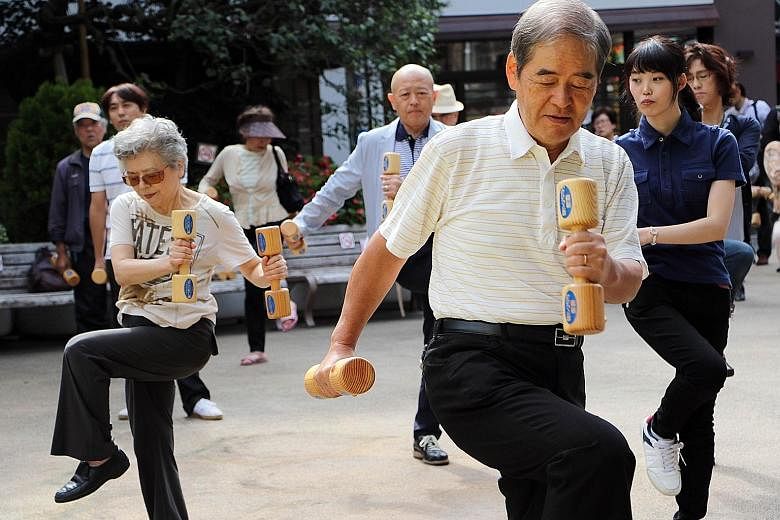Seniors can contribute much to society but they are often assumed to be a burden and discriminated against, the World Health Organisation (WHO) said yesterday.
That assumption could lead to the policymaking idea that "spending on older people is simply a drain on economies", according to its World Report on Ageing and Health released yesterday.
The WHO slammed ageism and described it as "an even more pervasive form of discrimination than sexism or racism". It said such assumptions ignore the many contributions older people make to the economy.
The report cited a 2011 study in Britain, which found that, after deducting pensions, welfare and healthcare, older people contributed £44 billion (S$95 billion) to society in terms of taxes, spending and other economically valuable activities.
This contribution is set to rise to £77 billion by 2030. Older people also contribute in less economically tangible ways, such as providing emotional support or mentorship.

The report added that enabling people to lead long and healthy lives may actually ease pressures on inflation in healthcare costs.
Social and technological changes "mean that getting older in the future will be very different from the experience of previous generations".
"For older people with desirable skills and financial flexibility, these changes create new opportunities."
The report also said outdated stereotypes limit the way societies conceptualise problems. They also limit their capacity to seize innovative opportunities.
Poor health "does not need to dominate older age", it said. Loss of ability is "only loosely related to a person's chronological age".
Some people in their 60s need help with basic activities, yet there are 80-year-olds with "levels of physical and mental capacity comparable to those of many 20-year-olds", the WHO added.
The report said most older people's health problems are associated with chronic conditions, many of which can be prevented, delayed or managed if detected early.
It added that the goal of healthy ageing is to maximise functional ability so that people can continue doing what is important to them .
WHO director-general Margaret Chan said: "The greatest costs to society are not the expenditures made to foster this functional ability, but the benefits that might be missed if we fail to make the appropriate adaptations and investments.
"With the right policies and services in place, population ageing can be viewed as a rich, new opportunity for both individuals and society."
The report's focus is on building the abilities of older people to enable them to navigate their changing world, and to invent better and more productive ways of living.
Professor Euston Quah, head of the economics division at the Nanyang Technological University, said government policies need to incentivise employers to regard older people as an asset, and not as employees who are a liability.
He said: "If policies are crafted right, one can expect a healthier ageing population. There will also be less burden for the family, which then encourages higher or no losses to total productivity for the country."
Dr Jeremy Lim, who heads the health and life sciences practice at consulting firm Oliver Wyman, said: "Singapore is pretty much headed in the right direction. With SG50 and the Pioneer Generation Package, there is now recognition of the value seniors bring to society.
"All that said, it's still early days, and Singapore needs to execute the plans well."


